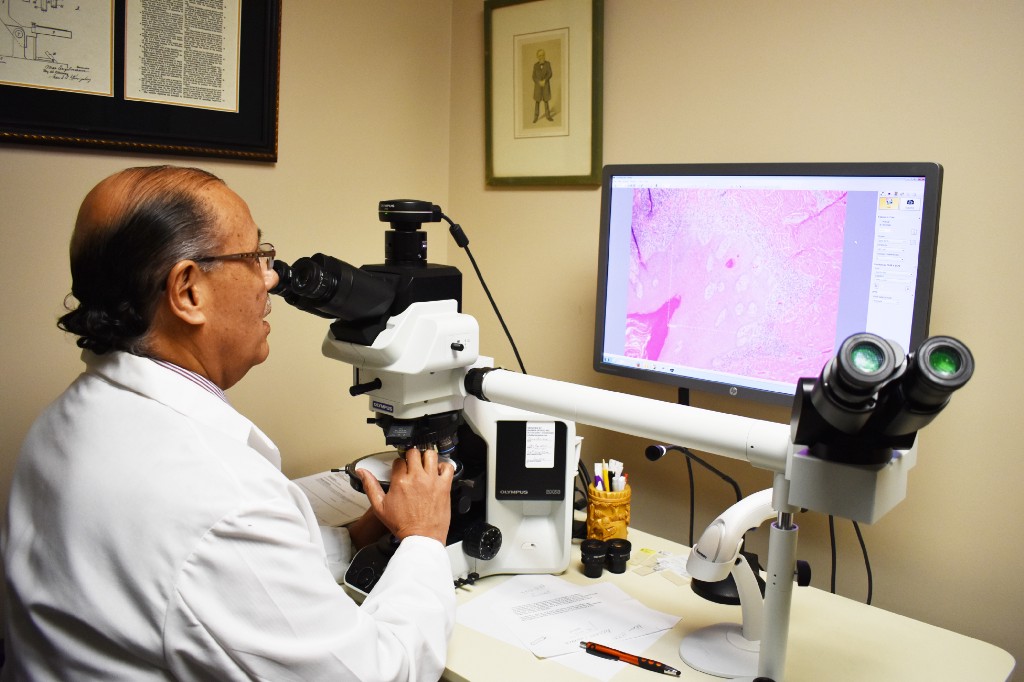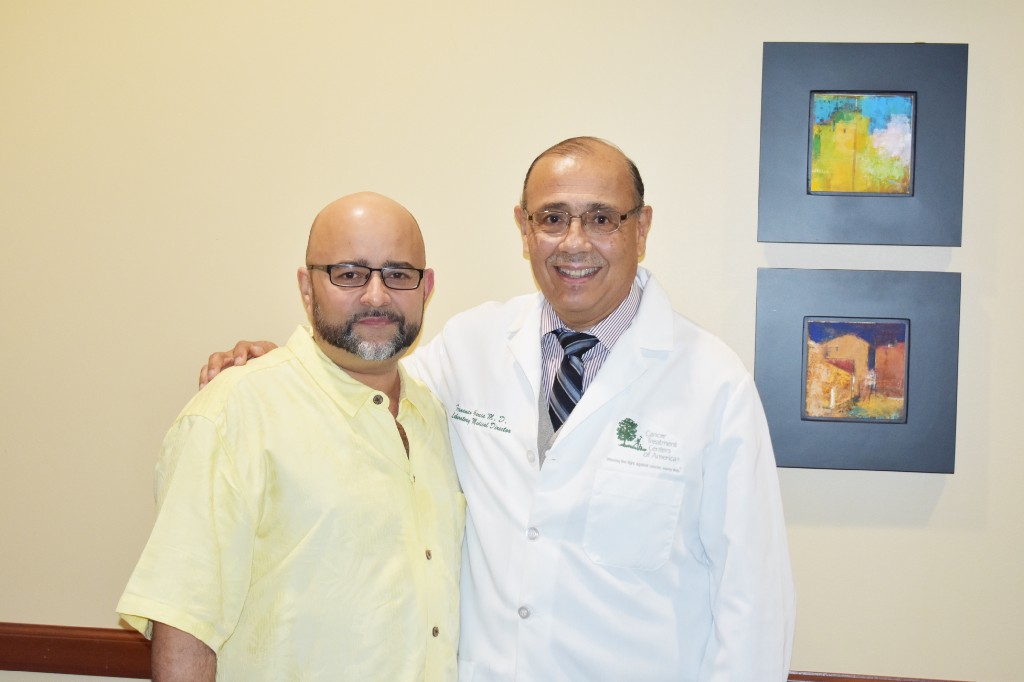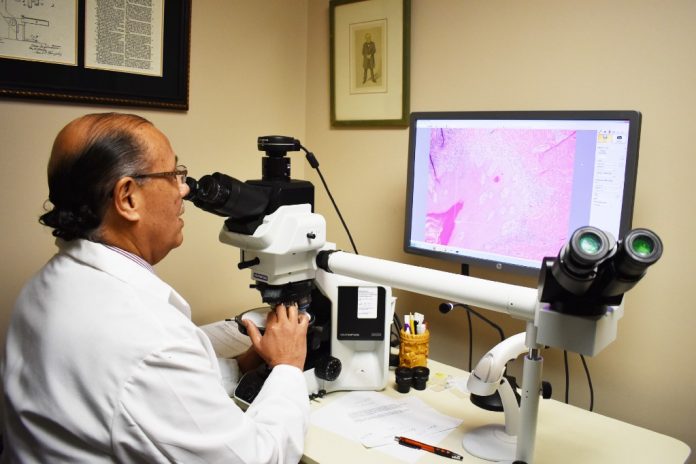Colonoscopy isn’t anyone’s favorite word, but Cancer Treatment Centers of America in Philadelphia is working to make screenings easier and more accessible.

The signs were there, but Hector Mercado discarded them as irrelevant. It’s just a little stomach pain, he said. There was only bleeding in his stool sometimes.
After nine months of ignoring the symptoms, his wife Wanda pushed him to go to a doctor in August 2014.
“My dad never wanted to go to the doctor,” he said. “He thought, all doctors do was poke and prod.”
When he did go, he was given the diagnosis no one wants to hear.
“They saw a tumor,” he said. He had stage 4 colon cancer, which had metastasized to his liver. “I waited too long.”
Mercado comes from a Hispanic background, which Dr. Fernando Garcia said often has negative outcomes in cancer screenings. The Hispanic community has lower rates of screening for colon, breast and cervical cancer than the non-Hispanic community, according to Cancer.org, which cites health access barriers as one of the primary reasons.
Garcia, of Cancer Treatment Centers of America, offered three additional possible explanations.
“Family history is important,” he said. “Unfortunately for the Latin population, we have a tendency to be really reserved, so you really don’t know what your aunt or first relative died from because they didn’t want that to bother the family.”
Second, Garcia said cancer is a result of mutations that happen over time, and that in many cases it still comes down to bad luck. He said this highlights the fact everyone needs to be alert of symptoms.
And third, he said being overweight is a prevalent issue in the Hispanic community, carrying a gene that causes Hispanics to gain weight faster than other communities. Obesity can often predispose colon cancer.
For Mercado, it wasn’t just his father who didn’t like the doctor — it was his whole family.
“I don’t think people are afraid of the colonoscopy,” he said. “They’re afraid of the diagnosis.”
After his diagnosis, Mercado came to CTCA and underwent 12 cycles of chemotherapy and removed half of his liver, because “almost half of it was covered.” The tumor in his colon was removed, but after two years, signs of the cancer started reappearing.

The word colonoscopy isn’t anyone’s favorite, and CTCA is practicing new methods that are supplementary to the procedure, that will hopefully make going through one easier.
One of the methods is a Cologuard, which is a liquid biopsy done in the stool that detects specific genomic or DNA alterations present in cancer that could be shed into the stool.
“A colonoscopy is still the gold standard,” said Dr. Arturo Loaiza-Bonilla of CTCA. “Just because you get these treatments does not mean you do not need to get a colonoscopy, but it could show you why you have to get one.”
Another gentler method is the CT Colonography, similar to a CAT scan that allows doctors to find areas of concern like polyps and swarming masses in the patient’s bowels.
A third method used more for advanced cancer inserts liquid biopsies into the blood and looks for pieces of abnormal DNA that could denote cancer. The treatment is still early in development and is not yet FDA approved, but Loaiza said it is being researched heavily.
When Mercado’s cancer returned, he said he received a treatment that wasn’t effective from another hospital, and “hoped and prayed” to be able to return to CTCA.
“We’re getting ready to treat the colon cancer,” he said. “Staying ahead.” ••
To learn more about CTCA, visit cancercenter.com





